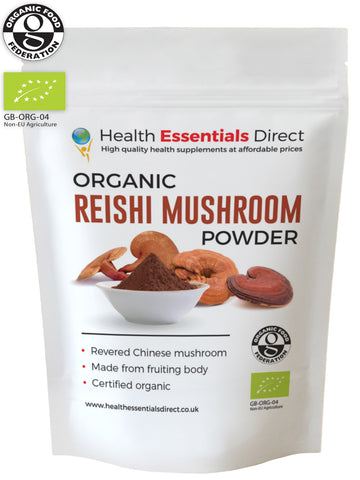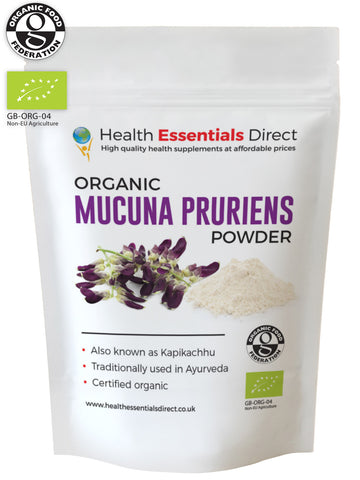Organic Tulsi Powder (Holy Basil, Adaptogen, Ayurvedic Super Herb)
Organic Tulsi Powder (Holy Basil)
-
Also Known as Holy Basil
-
Traditionally Used in Ayurveda
-
Certified Organic by Organic Food Federation
About Tulsi Powder (Holy Basil)
The tulsi plant (Ocimum tenuiflorum) is a perennial herb belonging to the Lamiaceae family. The plant is native to India, Taiwan, and parts of Northern and Eastern Africa. However, it now flourishes in many other regions such as Hainan Island, Malaysia, Philippines, Laos, China, Thailand, Indonesia, and Vietnam. Tulsi’s genus name, Ocimum translates to ‘fragrant plashed’, while the specific name, tenuiflorum translates to ‘tiny flowers’. Tulsi is also referred to as holy basil or tulasi. Holy basil alludes to how the plant was considered holy in the Indian region where it is native, especially among the locals who practice Hinduism.
Cultivation of tulsi is a very common practice in different regions nowadays. This plant does well in a variety of soils but particularly thrives in sandy loam soils and well-drained soils. A hot and wet climate has also been found to be ideal for the growth of this plant. Drought conditions and frost can cause a significant decrease in the yields for this plant. Tulsi is cultivated at altitudes not exceeding 900m. Propagation of tulsi is done using seeds. The planting season usually starts around February while the transplanting of the seedlings from the nursery is done in mid-April. Harvesting is done approximately 90 days from the time of planting. The mature plant is cut at a height of 15cm from the ground. After harvest, the leaves are dried under a shade for 2-3 days before being ground to obtain tulsi powder.
Tulsi has been used in Indian households for over 500 years. Numerous tales have been passed down over several generations to try and explain the spiritual importance of this plant. One of the popular ones claims that tulsi is a manifestation of the Hindu goddess of wealth Lakshmi. The legend states that the Hindu god Vishnu had three wives, with Lakshi being one of them. In the Hindu culture, there was a ceremonial marriage referred to as tulsi vivah. It was a marry-off between the tulsi plant and God Vishnu. The other two co-wives were constantly envious of the love Vishnu showed to Lakshmi. As a result, they banished her to earth to be reincarnated as a plant. Vishu consoled Lakshmi that she would be born as a Tulsi tree and would still share the connection they already had. Other legends state that Brahma, the god of creation lives on the branches of the tulsi tree. Many households considered the tulsi tree to be sacred and worshipped it during different ceremonies. Also, water was poured into the leaves of the tulsi plant and then fed to those who were critically ill, especially those on their death beds. It was believed that the spirituality revolving around the plant meant that the souls of those who were about to leave would be elevated to better grounds. Also, stems of the woody plant that seemed weak and were dying off would be used to make revered prayer beads that would be used during meditation and piety sessions. Traditionally, tulsi was taken with the belief that it would bring about calmness to the body and mind. It was dried or infused with herbal tea and consumed by the locals.
- Please note it is against MHRA guidelines for us to talk about any potential health benefits for this supplement however a quick google search on the potential benefits and you may be surprised.
How To Use
We recommend taking 1/2 a teaspoon twice daily, best made into a hot tea, can also be taken with milk or honey or added to smoothies.







